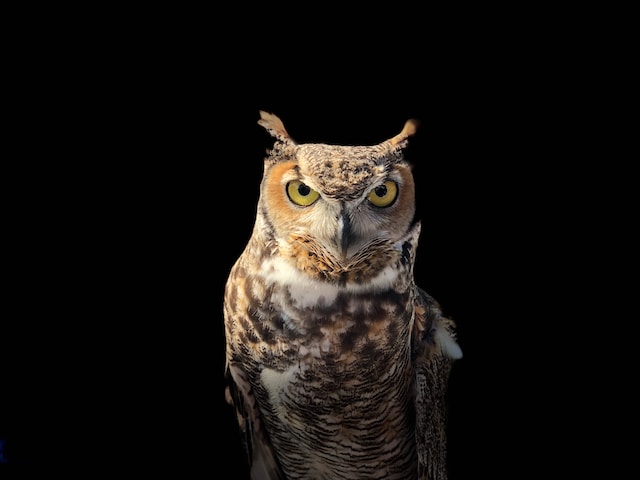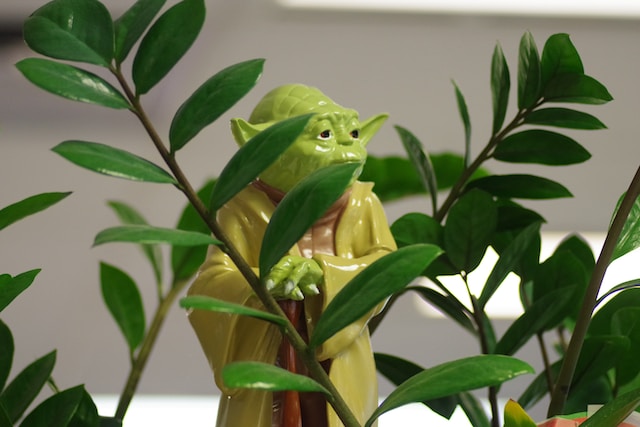Prudence is about making decisions based on practicality and caution, wisdom involves a deeper understanding of the world around us and an ability to make sound judgments based on experience and knowledge. Prudence can be useful when dealing with immediate problems or short-term goals. Meanwhile, wisdom can help guide us through more complex issues that require a broader perspective.
Prudent
(Image by Gerd Altmann from Pixabay )

Prudence is a quality that involves careful and thoughtful decision-making. People who are considered prudent tend to weigh the pros and cons of each situation before making any choices. They are methodical in their approach, taking into account all possible outcomes and potential risks.
Prudent individuals also tend to be focused on practical considerations rather than emotional or impulsive reactions. They take into account factors such as financial stability, long-term consequences, and risk management when making decisions about important matters.
Being prudent can have many advantages in both personal and professional settings. Prudent people are often seen as responsible and reliable, which can lead to increased trust from others. Additionally, they tend to be better at managing money and resources effectively due to their ability to make calculated decisions.
However, being overly cautious or rigidly adhering only to practical considerations can sometimes lead to missed opportunities for growth or innovation. It’s essential not always just rely on prudence but also use our intuition & experience while making some critical judgments in life
Wise
(Photo by James Lee on Unsplash )

Wise is a word that often brings to mind images of an elderly sage imparting valuable advice. However, wisdom is not limited by age or experience. Rather, it encompasses the ability to think critically and make sound decisions based on knowledge and understanding.
A wise person has a deep understanding of the world around them, which allows them to navigate complex situations with ease. They are able to see beyond their own biases and emotions, making rational choices that benefit themselves and others.
Wisdom also includes an innate sense of empathy and compassion for others. A wise person understands that their actions can have far-reaching consequences on those around them, so they strive to act in ways that promote harmony rather than discord.
To be truly wise requires a willingness to learn from one’s mistakes as well as successes. Wisdom comes from reflecting on past experiences and using this knowledge to inform future decisions.
In short, being wise means possessing a combination of intelligence, empathy, self-awareness, reflection and critical thinking skills that enable you to make informed decisions throughout your life.
Prudent Vs. Wise – Key difference
Prudent and wise are two distinct concepts that often get confused. Being prudent means showing care, caution, and good judgment in making decisions, especially when it comes to matters of finances or practicality. On the other hand, being wise involves having a deep understanding of life’s complexities and using this insight to make sound choices.
The key difference between these two traits lies in their focus. Prudence is more concerned with taking calculated risks while minimizing potential harm or losses. It’s about avoiding unnecessary risks that could lead to negative consequences. In contrast, wisdom is about seeing the bigger picture beyond what’s immediately evident and making a decision based on a broader perspective.
Another significant difference between prudence and wisdom is their scope of application. Prudence mainly applies to financial matters such as investing money wisely or saving for emergency situations. Wisdom has much broader applicability since it affects all aspects of life including personal relationships, career choices among others.
In summary, prudence helps us avoid mistakes that may have immediate consequences while wisdom enables us to see the long-term impact of our actions on our lives as well as those around us.
When to be prudent Vs. When to be Wise
Knowing when to be prudent versus when to be wise is key in making effective decisions. Prudence involves being cautious and calculating, while wisdom entails using experience and knowledge to make informed choices.
In situations where there are potential risks involved, it is important to exercise prudence. For example, before investing a large sum of money or taking out a loan, one should carefully consider the potential outcomes and weigh the risks against the benefits.
On the other hand, wisdom comes into play when faced with complex situations that require deeper understanding. Wisdom requires one to draw from past experiences and apply them in new contexts. For instance, an experienced leader will use their accumulated knowledge to make strategic decisions that benefit their team or organization.
It’s important to note that both prudence and wisdom have their place depending on the situation at hand. However, knowing which approach is most appropriate can help prevent costly mistakes and ensure long-term success.
Ultimately, cultivating both prudence and wisdom through learning from our experiences can lead us towards better decision-making skills in all aspects of life.
The advantages of being Wise
Being wise has many advantages in life. It allows us to make better decisions, solve problems more effectively and navigate difficult situations with ease. When we are wise, we have a greater understanding of the world around us and can use this knowledge to our advantage.
One of the main advantages of being wise is that it helps us to avoid making mistakes. Wise people are often able to see the bigger picture and consider all possible outcomes before making a decision. This means they are less likely to take unnecessary risks or make decisions based on impulse.
Another advantage of being wise is that it allows us to build stronger relationships with others. When we are wise, we have a greater sense of empathy and understanding towards others which makes it easier for them to trust us and confide in us.
Wise people also tend to be more successful in their careers as they have a deeper understanding of their industry and can make informed decisions about how best to progress their careers.
Being wise brings inner peace and contentment into our lives by enabling us to live with purpose and meaning. By focusing on what truly matters in life, such as personal growth, relationships, community involvement etc., we can lead more fulfilling lives filled with joy and happiness.
There are numerous benefits associated with cultivating wisdom in our lives; from avoiding mistakes through thoughtful consideration when faced with important choices; building strong relationships through empathy towards others; attaining professional success by having deep knowledge within one’s field ; finally bringing inner peace into everyday activities by living intentionally for what truly matters most!
The advantages of being Prudent
Being prudent can have many advantages in both personal and professional settings. One of the main benefits of being prudent is that it helps to avoid unnecessary risks, which can lead to costly mistakes or even failure. By carefully considering all options and potential outcomes before making a decision, one can prevent financial losses and protect their reputation.
Another advantage of prudence is that it promotes long-term thinking. Prudent individuals tend to plan for the future by saving money, investing wisely, and building strong relationships with others. This mindset allows them to achieve greater success over time while avoiding short-sighted decisions that may harm their prospects.
Furthermore, prudence helps individuals maintain self-control in difficult situations. When faced with challenges or temptations, those who are prudent are more likely to resist impulsive actions and make rational choices based on careful consideration. This level-headedness often leads to better outcomes in the end.
Being prudent fosters trust from others because they know you’re not going into something headfirst without any forethought or caution.
Prudent individuals are seen as responsible actors who take proactive steps towards mitigating risk; this earns them respect among peers and colleagues alike.
Developing a habit of prudence brings several significant advantages both personally and professionally: preventing risky behavior leading to undesirable consequences; promoting long-term thinking creating opportunities for greater success; displaying self-control under challenging circumstances leading ultimately earning trust from others around us – these all demonstrate how beneficial cultivating prudence could be in our lives!
Is it possible to cultivate prudence and wisdom or is it a gift?
Prudence and wisdom are often seen as innate qualities that people are born with. However, it is possible to cultivate both these traits through conscious effort and deliberate practice.
Prudence can be developed by making thoughtful decisions based on careful consideration of all available information, weighing the pros and cons of each option before making a choice. It involves taking calculated risks and being cautious when necessary. By regularly practicing prudence in decision-making processes, one can develop a habit of thinking carefully about every situation they face.
Wisdom is also something that can be cultivated over time through experience, learning from mistakes, seeking out new knowledge sources, and reflecting on past experiences. It involves having insight into human nature and being able to see situations from different perspectives. Through self-reflection and seeking advice from mentors or trusted individuals, anyone can work towards becoming wiser.
While some people may have a natural inclination towards prudence or wisdom due to their personality or upbringing, it is possible for anyone to develop these qualities through conscious effort and practice. With dedication and perseverance in cultivating these traits in oneself over time, one can become more prudent or wise than they were before.
Featured Image By – Nadir sYzYgY on Unsplash








